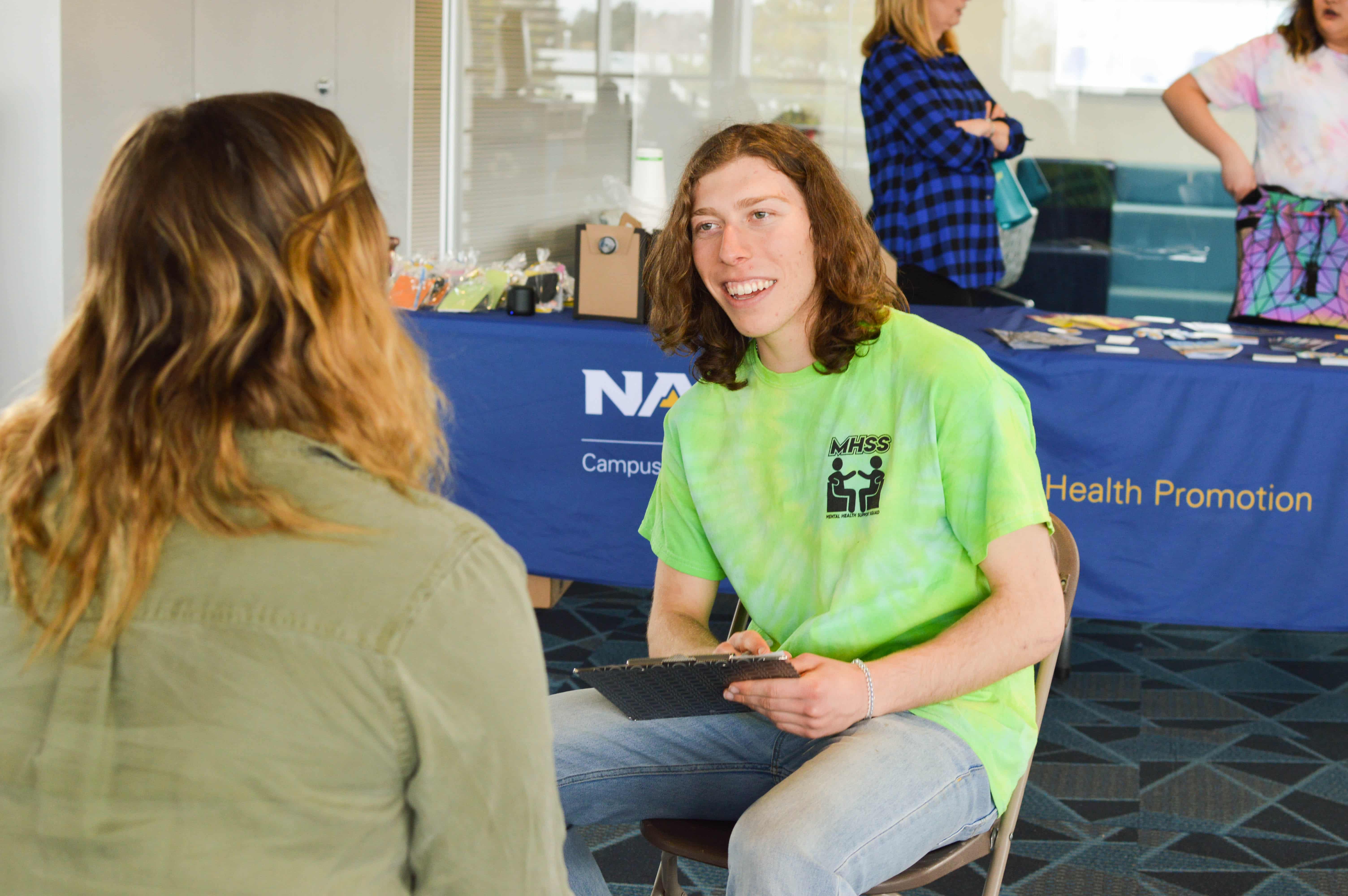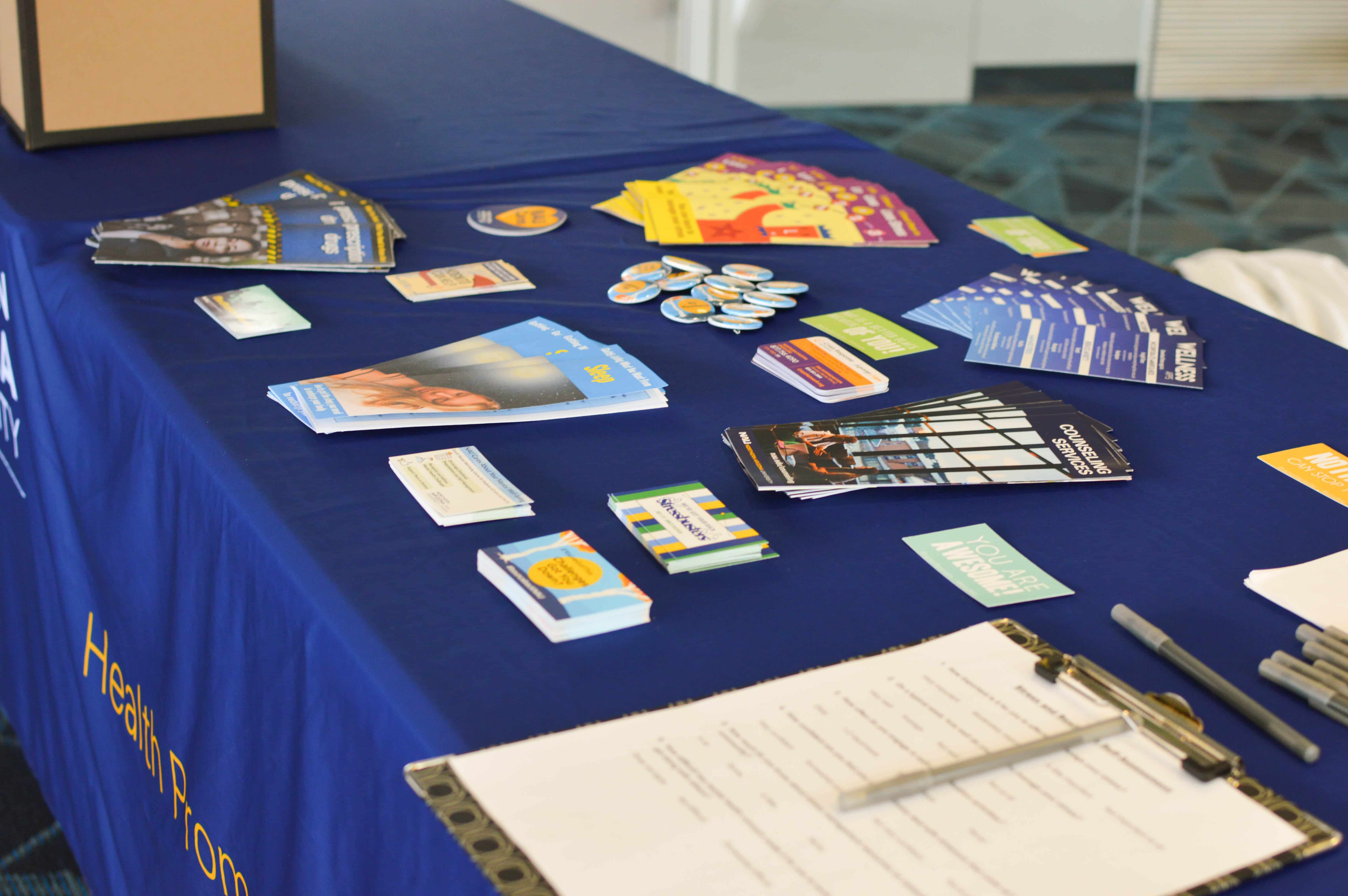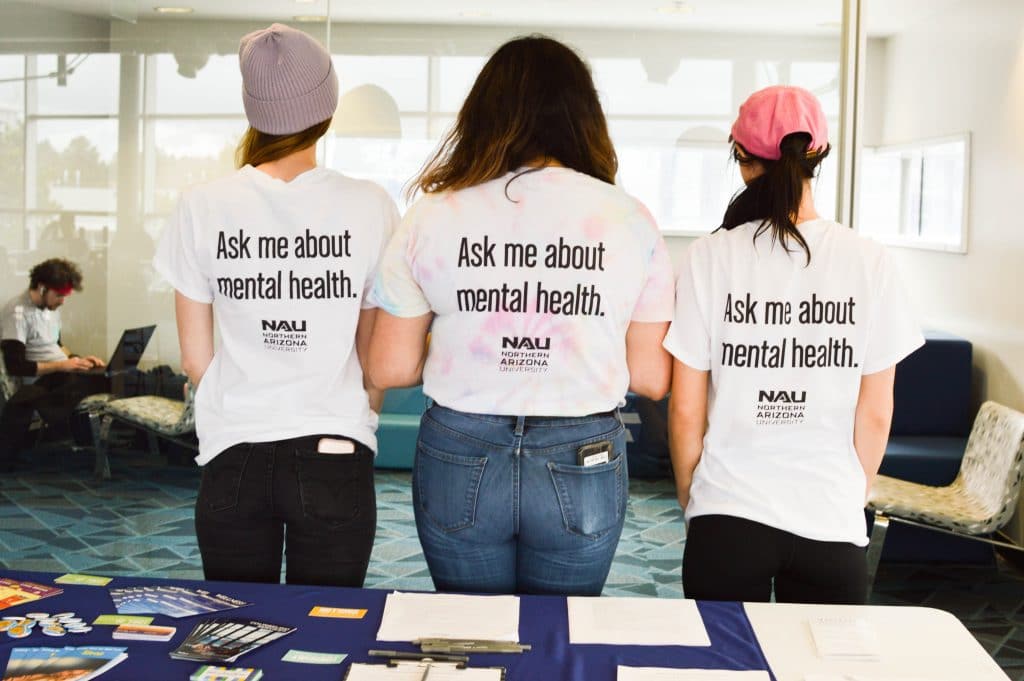After a tough day, leaning onto a community of people who care can be one of the most soothing activities, but sometimes we may find ourselves feeling lonely. As a response, the Mental Health Support Squad, a group of undergraduate and graduate student volunteers at Northern Arizona University, has been organized under the direction of counseling services to offer peer support to build capacity and support student well-being.
Megan Gavin, director of counseling services, is excited about the group of students’ passion for mental health awareness and education.
“Nearly 68 percent of NAU students reported feeling very lonely within the last 12 months. Peer-to-peer support clearly has the ability to change this statistic,” Gavin said.
By utilizing the benefits of peer support, normalizing authenticity and developing a more informed and compassionate campus community, the group hopes to decrease the stigma surrounding mental health, help-seeking and self-care.
“The idea for a peer program has been discussed and explored for several years and many other institutions have created such programs to support student well-being,” Gavin said. “We know that empowering and equipping students to support their peers around mental health issues is one of the best ways to build capacity.”

Students in distress usually turn to peers first before reaching out to professionals, so it makes sense to equip peers with the skills and resources to support those students. Traditional mental health services only reach a small number of students, but peer programs like the Mental Health Support Squad have the ability to reach much further.
After hearing Gavin speak at Student Health Advocacy Council, Denise Ocampo, a senior Honors student in biomedical science, decided to get involved with the squad. Ocampo said she recognized how important the need was and wanted to do what she could to help.
“I grew up having a sheltered view of mental health, but my views changed when I learned that some of my closest friends have struggled with mental health. I had to learn more about it and how to help my friends deal with it,” Ocampo said. “When I came to NAU, I was really excited that there were more conversations happening about mental health, and when I heard they were talking about starting the squad, I thought it would be really cool to help get it off the ground by learning even more about mental health and providing more resources to the community.”

This week, the squad hosted its first event, a Mental Health pop-up, where the team was introduced to campus. They provided mental health assessments, talked through resources and left students with connections to peer support.
Gavin is excited to expand the program, hoping to grow the number of events and services the squad offers and create specialized teams within the group to focus on specific mental health issues.
“In the last year and a half, the Mental Health Support Squad idea really started to gain momentum with the help of several staff members and students who researched other programs, consulted with other universities, designed the initial training and spread the word,” Gavin said. “It’s been amazing to see it all come together successfully and, most importantly, with such tremendous interest and excitement on behalf of the students.”
For more information about the Mental Health Support Squad, email Support.Squad@nau.edu or follow the squad on Instagram.

(928) 523-4789 | McKenzie.McLoughlin@nau.edu



